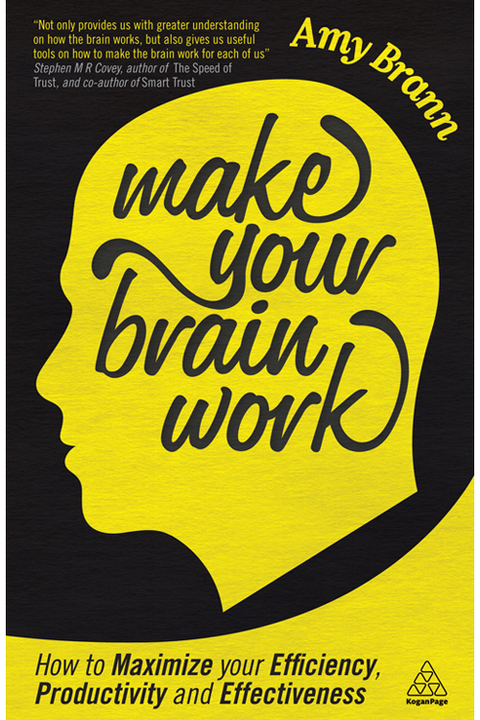Description
Efnisyfirlit
- Cover
- Dedication
- Title Page
- Imprint
- Praise for Make Your Brain Work
- Contents
- Preface
- Acknowledgements
- Introduction
- How to read this book
- Meet the coach
- Meet the professionals
- PART 1 – YOU
- 1 Can a marshmallow predict your success?
- Possibilities
- Prioritization
- Picturing your goal
- Starting with the end in mind
- Prefrontal cortex
- Practical prioritization
- New information
- Multi or mono
- Your plastic brain
- Reassuringly flexible
- Enriching your potential
- Action
- 2 Is your hippopotamus under attack?
- Stress: the classic culprit
- Predictability and stress
- Perhaps pounding the pavements is the answer
- Negative connotations
- Checking out of stress and into normality
- Hippo attack
- Mirror neurons
- Possibilities
- Lack of control
- Stress busting
- Focus
- Action
- 3 Learning how to influence what feels out of your control
- States, emotions and feelings
- To know or not to know
- Controlling our feelings
- Controlling our emotions
- Practically possible
- Why anchoring is vital
- About the cup
- The importance of smell
- Action
- 4 The challenge of being everything to everyone
- Possibilities
- Distractions
- Benefits of braking
- Getting stuck
- Strategic planning
- Getting unstuck
- Decision making
- Filtering incoming data
- Emotional area
- Action
- 5 Is a busy brain a clever brain?
- The brain in action
- In one ear, out the other
- Full head
- Enriching your environment
- Knowledge into practice
- A leopard can change its spots
- A lot of hard work
- Practically possible
- 6 Getting results easily and with less effort
- The neuroscience behind habits
- The reality of the chocolate habit
- Reprogramming a habit
- How a faulty circuit can be fixed
- What is possible
- Neuroplasticity and habits
- ‘Damaged’ as a child
- Neural Darwinism
- Competitive plasticity
- How you create new habits
- Why bad habits sometimes return
- Action
- PART 2 – YOUR COLLEAGUES AND CLIENTS
- 7 Working and living in balance
- Work–life balance
- Expectations: theirs and yours
- Conflict
- Causes of tiredness
- Time versus energy
- The importance of control
- How the mind works optimally
- Action
- 8 Upgrading your life one step at a time
- What the brain has to do with getting stuff done
- Brain areas of goal achievement
- Getting specific
- Real or imagined
- The neuroscientist’s biggest kept secret
- Motivation
- Your state matters
- Deserving a reward
- Action
- 9 The minefield of motivating people
- Motivating others
- What motivates you
- Some rewards motivate
- Higher purpose
- Power of expectations
- Motivation zappers
- Power of control
- Power of certainty
- Power of confidence
- Mood and motivation
- 10 Transforming meetings
- Personality problems
- Unfairness
- The two routes of fear
- Problems with meetings
- Memes
- Remembering stuff
- Feeling excluded
- Action
- 11 Making every presentation count
- Outcome
- Engagement
- How to engage people
- Planning
- Intentions
- Priming
- Mental rehearsal
- Mirror neurons
- Stress busting
- Emotion
- Death by PowerPoint™ and sleep-inducing notes
- Body language
- 12 Appearing competent to others
- Insights
- How to predispose yourself to having more insights
- Why you forget
- Real or fabricated
- Episodic versus semantic
- Brain areas
- Working memory
- Emotions and memory
- Unconscious memories
- Priming
- PART 3 – YOUR COMPANY
- 13 Leading with your brain switched on
- Leaders today
- The synaptic circle
- Confidence
- Understanding status
- Mirror neurons
- Certainty
- Culture
- Celebration
- Control
- Connection
- Contribution
- 14 Simply authentic sales
- Decision making
- Intention
- Identifying pain
- Unique calm
- Prove gain
- Credibility: stories and pictures
- Emotions
- Congruency
- 15 Managing people, managing brains
- Managing people – a brain perspective
- Trust
- Predictability and ambiguity
- Fairness
- Social reward
- Neuromanagement
- Feeling
- Thinking
- The evaluator
- The conflict manager
- Interpreting
- Action
- Reward
- References
- Index
- Full imprint





